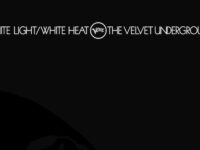Before I began paying attention to Lou Reed, his songs never made any impression on me: All of Lester Bangs’ rants had no effect. Velvet who? Didn’t matter.
There was as yet no “there” there for my adolescent brain to muckle onto. It took a few years of living (plus a whole pile ‘o Rolling Stone, Creem and other rock propaganda) to figure out that, hey, there’s just something about that weird dude and his even weirder voice.
But then … I turned into a jazz snob. There’s no gettin’ around it. Honkin’, screechin’ and cats-walking-on-piano sounds emanated from my stereo for several years. “When are they gonna stop practicing?” was the joke question. Well, they never really did stop “practicing” in my mind, but some happy musical synchronicity brought Reed back into the picture.
Right around the time of the release of Lou Reed’s New York (and subsequent airplay of “Dirty Blvd.”), I heard the most amazing song on the after-work drive. The “singer” sounded like Louis Armstrong gone insane. There were references to booze, strippers, trench coats and cleavage. Accompanied by just a drum kit, the “singer” belts and scats it out. The tune was Tom Waits’ “Pasties and a G-String” (from 1976’s Small Change).
In a very short timespan, I had developed a jones for oddly constructed male vocals.
As I dug into the coolness of New York, the residue of Lester Bangs’ incessant ReedRamblings(tm) came to mind. I got myself a copy of some live Velvet Underground record and discovered a whole ‘nuther world ‘o screech. Maybe Bangs wasn’t nuts after all. Maybe I can figure out why I find myself enjoying those flat and wobbly vocals. Maybe the Honda Scooter ads made sense after all.
Fast forward to March 23, 2004, and Lou Reed’s live album Animal Serenade. Instead of the early-Animal GlamRockOnSteroids sound, Lou’s very talented band (second guitar/guitar synth, bass, drums, cello) delivers the goods in an elegant, almost cerebral fashion. The influence of wife and fellow art-weirdo Laurie Anderson, maybe?
In any event, we are treated to some of Reed’s then-current stuff (“The Raven”), recent material (“Set the Twilight Reeling”), older rarities (Berlin’s “Man of Good Fortune” and “The Bed,” “Small Town” from Songs for Drella), sturdy Reed classics (“Street Hassle”) and the Velvet Underground classic “Venus in Furs,” with scorching cello solo provided by Jane Scarpantoni.
There’s also a song written and sung by bassist Fernando Saunders: “Revien Cherie.” I remember some reviewers spitting bile at this tune. Relax! The juxtaposition of Saunders’ beautiful voice next to Lou Reed’s croak is what makes it work. What? Lou’s not following your rules for his show? Get over it.
This record made for a pretty neat Lou Reed career retrospective and statement of where Reed was at that moment. Some folks couldn’t take the altered arrangements of the material but, hey, that’s their problem. For somebody with such a varied career, I expected nothing less.
- Why the Rolling Stones’ Harrowing ‘Gimme Shelter’ is Still Revealing New Depths - November 18, 2024
- How Talking Heads’ ‘Fear of Music’ Opened Up a World of Art and Sound - August 5, 2024
- How Deep Cuts Propelled Bruce Springsteen’s ‘Born in the U.S.A.’ - June 4, 2024




I enjoyed reading your article muchly…. I have been listening to Lou Reed since I was sixteen and next year is the big ’60’ ….. he writes with passion that like many writers is never readily understood as it is meant …. but after ‘so many words … we know who Lou Reed is’ … it is quite wonderful to be able to chart folks life from their work and of course nowadays we can……. Some of his work made me think often that ‘hey that’s true’ … He has always been to me a ‘man in pain’ who shares it well … maybe now his pain is for others… lol Lazarus Carpenter